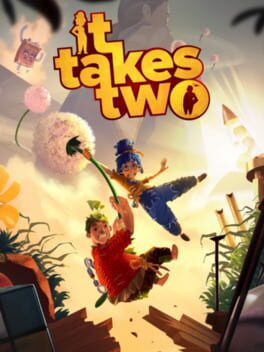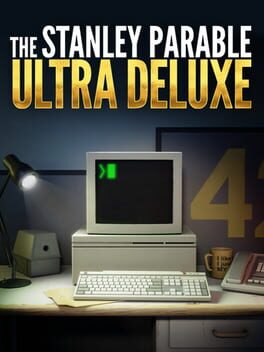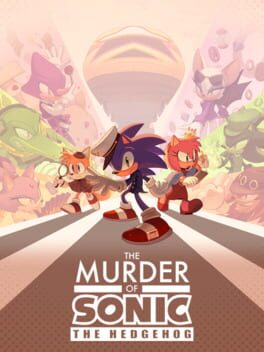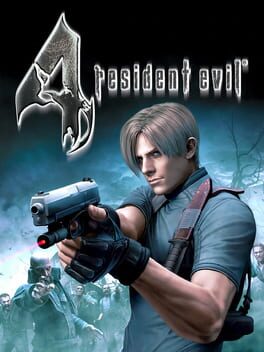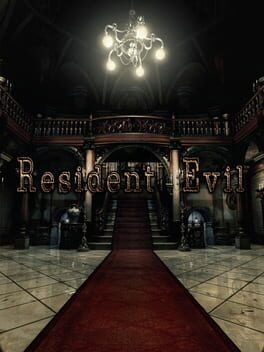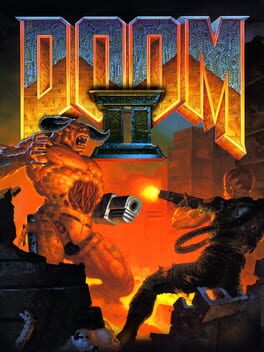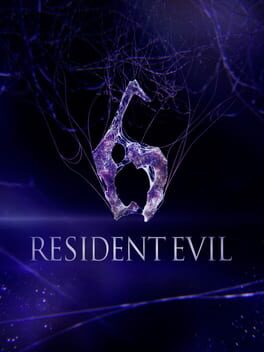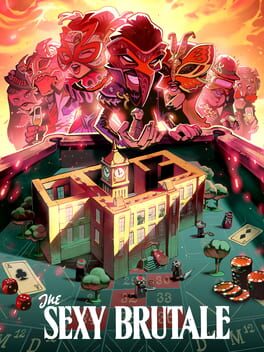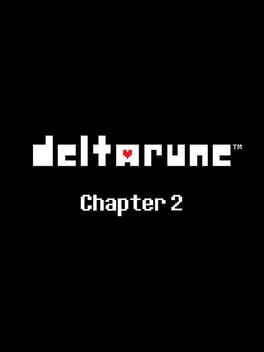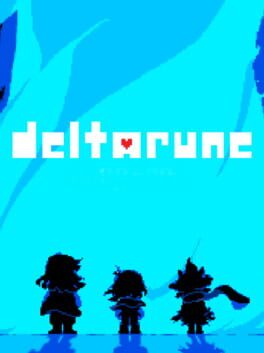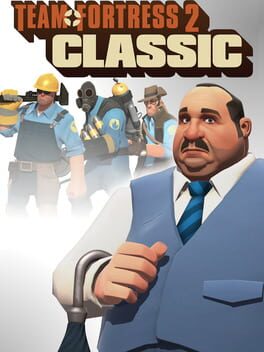2021
I don't believe It Takes Two is a game worth picking up if you're not looking for something casual to play with a friend. What I mean by this is the game is not memorable enough in either narrative or gameplay to warrant feeling left out by its co-op exclusivity.
It Takes Two provides a mixed bag of different pieces of collective gameplay nostalgia: most notably from 3D platforming, co-op puzzles, and arcade shooters. It pretty much never develops the ideas it throws in the mix beyond their rudimentary designs, relying instead on changing environments to keep attention going. To its credit, the looks of the worlds are entertaining cinematically, with side events to interact with that generally add to their charm. Overall, it has the feeling of an uneven licensed kid's game.
The best co-op games, in my opinion, have everyone playing doing an interesting role simultaneously and reacting to one another's inevitable shortcomings. It Takes Two is mostly horribly unwilling to provide these kinds of challenges. I can only think of a single part of the game - a boss fight around its halfway mark - that carries a remnant of the urgency a co-op game usually has, and it doesn't even use any special abilities. This makes a lot of the gameplay feel clunky and redundant, as most of it feels like you're just waiting for the other person to do something simple. If this is a metaphor for turn-taking, it's lazily implemented.
This is not to say that all the rest of the gameplay is bad, just that it frequently gets monotonous. I wish more of the gameplay was as absurd as the set pieces. For a game that aims to switch it up every chapter, it isn't consistently fresh. This doesn't pair well when it's so noncommittal to developing any mechanics, even the ones it recycles. It relies too much on the occasional quick novelty, which doesn't work for its runtime. It's low stakes in every respect.
The narrative of It Takes Two is uncomfortably bad, even disregarding its worst implications that border on parody. Plot developments are so abrupt, despite the game's length, it feels as though they were a dejected afterthought. Despite being a game about rekindling love, there is next-to-no romantic tension between the leads; the dialogue is almost entirely the two either bickering over nonsense or marveling at the scenery. When they eventually do communicate over their problems, it boils down to awkwardly exchanging "that's too bad" remarks.
This makes the theoretical cooperation you're building in the gameplay completely detached from what the protagonists are going through. It all culminates in a final chapter that should feel emotionally powerful, but is instead baffling. I don't understand why they bothered making this a game about divorce with such a shallow story; it seems like a waste of an interesting ludonarrative.
It Takes Two provides a mixed bag of different pieces of collective gameplay nostalgia: most notably from 3D platforming, co-op puzzles, and arcade shooters. It pretty much never develops the ideas it throws in the mix beyond their rudimentary designs, relying instead on changing environments to keep attention going. To its credit, the looks of the worlds are entertaining cinematically, with side events to interact with that generally add to their charm. Overall, it has the feeling of an uneven licensed kid's game.
The best co-op games, in my opinion, have everyone playing doing an interesting role simultaneously and reacting to one another's inevitable shortcomings. It Takes Two is mostly horribly unwilling to provide these kinds of challenges. I can only think of a single part of the game - a boss fight around its halfway mark - that carries a remnant of the urgency a co-op game usually has, and it doesn't even use any special abilities. This makes a lot of the gameplay feel clunky and redundant, as most of it feels like you're just waiting for the other person to do something simple. If this is a metaphor for turn-taking, it's lazily implemented.
This is not to say that all the rest of the gameplay is bad, just that it frequently gets monotonous. I wish more of the gameplay was as absurd as the set pieces. For a game that aims to switch it up every chapter, it isn't consistently fresh. This doesn't pair well when it's so noncommittal to developing any mechanics, even the ones it recycles. It relies too much on the occasional quick novelty, which doesn't work for its runtime. It's low stakes in every respect.
The narrative of It Takes Two is uncomfortably bad, even disregarding its worst implications that border on parody. Plot developments are so abrupt, despite the game's length, it feels as though they were a dejected afterthought. Despite being a game about rekindling love, there is next-to-no romantic tension between the leads; the dialogue is almost entirely the two either bickering over nonsense or marveling at the scenery. When they eventually do communicate over their problems, it boils down to awkwardly exchanging "that's too bad" remarks.
This makes the theoretical cooperation you're building in the gameplay completely detached from what the protagonists are going through. It all culminates in a final chapter that should feel emotionally powerful, but is instead baffling. I don't understand why they bothered making this a game about divorce with such a shallow story; it seems like a waste of an interesting ludonarrative.
2015
Undertale's most interesting story arc is the one it reflects back at the player, specifically the player's "determination" to certain fantasies. Its design for enemy encounters is also remarkable. The issues I have with this game are twofold: the game's actual narrative progression is mediocre, and the celebration of the player's commitment to the main route feels hollow.
The game does little or nothing to challenge you for sticking to pacifism. To some extent, this makes sense. The characters in the world are fully intended to be non-threats, as opposed to you. However, for a game about peaceful conflict resolution and staying determined, there is noticeably little conflict that's truly inconvenient. And sure, you likely want to see the good ending and what funny things the characters have to say next, but the game doesn't really interrogate why you'd prefer this.
Very few of the conflicts you have to resolve act as though they have stakes, and the ones that do (e.g. Alphys') are underdeveloped. Undertale repeatedly pulls back from getting too serious, occasionally toying with more difficult ideas without ever committing to anything memorable. The resulting dissonance feels unsatisfactory. Even if you pursue an alternate route, the game doesn't have much to say about the concept of being determined it keeps bringing up. It winds up being shallow moralizing.
It feels like the game is taunting you with its overwhelming optimism at its end; it literally juxtaposes its happy ending with the idea that a happy ending is impossible. I can't be the only one who thought that I really didn't do anything to earn the friendship of the majority of the cast; that there really is no guarantee of assimilation/integration for them; that the most troubling events in the Underground's history were skimmed over. It all came off to me as horribly insincere.
In the end, this is a damn ambitious one-man project from 2015 that has inarguably influenced many. I just think there's more to the "soul" than Undertale is willing to confront. There is so much Undertale does that's cool, it'd be a shame if these ideas weren't expanded upon somehow.
The game does little or nothing to challenge you for sticking to pacifism. To some extent, this makes sense. The characters in the world are fully intended to be non-threats, as opposed to you. However, for a game about peaceful conflict resolution and staying determined, there is noticeably little conflict that's truly inconvenient. And sure, you likely want to see the good ending and what funny things the characters have to say next, but the game doesn't really interrogate why you'd prefer this.
Very few of the conflicts you have to resolve act as though they have stakes, and the ones that do (e.g. Alphys') are underdeveloped. Undertale repeatedly pulls back from getting too serious, occasionally toying with more difficult ideas without ever committing to anything memorable. The resulting dissonance feels unsatisfactory. Even if you pursue an alternate route, the game doesn't have much to say about the concept of being determined it keeps bringing up. It winds up being shallow moralizing.
It feels like the game is taunting you with its overwhelming optimism at its end; it literally juxtaposes its happy ending with the idea that a happy ending is impossible. I can't be the only one who thought that I really didn't do anything to earn the friendship of the majority of the cast; that there really is no guarantee of assimilation/integration for them; that the most troubling events in the Underground's history were skimmed over. It all came off to me as horribly insincere.
In the end, this is a damn ambitious one-man project from 2015 that has inarguably influenced many. I just think there's more to the "soul" than Undertale is willing to confront. There is so much Undertale does that's cool, it'd be a shame if these ideas weren't expanded upon somehow.
This review contains spoilers
This is a difficult game to recommend, because it intentionally eats itself alive in its final hours. Fans of the 2013 game are treated with some juicy New Content that expands a bit on the original's magic before Ultra Deluxe reveals itself to be an elaborate prank.
Once you get the Bucket and exit the Expo, it slowly begins to dawn on you that the game has nothing interesting left to say, and almost everything else you do afterwards is recycled content. Some of this content is still funny, but none of it carries any of the interesting self-reflection the game is known for. It feels massively anticlimactic, which is largely intentional, but it can't help but feel like the game is wasting your time by literally becoming the cash grab it mocks.
Once you get the Bucket and exit the Expo, it slowly begins to dawn on you that the game has nothing interesting left to say, and almost everything else you do afterwards is recycled content. Some of this content is still funny, but none of it carries any of the interesting self-reflection the game is known for. It feels massively anticlimactic, which is largely intentional, but it can't help but feel like the game is wasting your time by literally becoming the cash grab it mocks.
2023
Disclaimer: While I do my best not to spoil any critical story details in this sketch of an analysis, I do go over in broad terms the direction the stories both the 2005 game and the 2023 remake make.
On one hand Resident Evil 4 Remake makes a good game even more replayable. It adds great voice lines for characters who only had development in found notes in the original. There are disagreements over which gameplay changes made things more interesting and which made things less, but I think it’s a matter of preference. Resident Evil 4 (2005)’s Pro Difficulty can be beaten much more easily than Remake’s. Remake has more challenges and more decisions to make, especially as a new game that hasn’t been fully mapped out by speedrunners yet. One way this happens is you’re expected to move around far more in Remake. To get a good picture of what I mean by that, I’d recommend anyone give the Chainsaw Demo a try. A fight that I had a few simple plans for in the 2005 version quickly strips away your options for staying put. There seem to be less ways to funnel your enemies into tight spaces, and even if you do manage there’s no easy ways I found to stunlock them. It’s all more complicated, for better and worse.
On the other hand, what I want to talk about the most is how the remake almost completely does away with what made the original most memorable for me: Shinji Mikami’s project was essentially the most ambitious noir script I’ve ever seen. The noir is a genre that typically bores me to tears. From what I can tell, the movies and such in this genre want you to empathize with the American man’s fear of losing control, of becoming dominated by women, of being unable to rescue innocents from grand conspiracies, of watching their old friends and the elderly become corrupted, of getting driven out by foreigners, of being used for evil. Yet most of the time I’d fail to really feel the stakes for a petty man caught in the middle of someone else’s tragedy.
Resident Evil 4 breathed new life into (or reanimated, if you prefer) a genre that usually disinterests me by throwing in everything but the kitchen sink. The horror, the action, and the absurdities are more in-your-face, and so I really got invested in what Leon was going through, constantly being demeaned for trying to be “an American hero” and surrounded by a bunch of supposedly straight men and women never straight-talking. He was like a Philip Marlowe or Mike Hammer, but I could actually understand his pent-up rage (and he is very funny). Probably the most gamer thing I’ll ever write is: I wish the remake kept the misogyny (among the other noir genre staples). “She’s like a part of me I can’t let go.” https://www.youtube.com/watch?v=pC3w5hXzekQ
Resident Evil 4 Remake’s story is instead - in a broad sense - about people trying to do the right thing against, well, evil people and creatures, which I would argue was never anyone’s explicit intention in the original. In fact, the first line Leon says after killing his first villager in the original is the realization “He’s not a zombie.” It’s a scene where many have remarked that the villager might have been entirely in the right to feel threatened by Leon’s presence, invading his home with a gun drawn speaking a foreign language. The lines between good and evil are a lot more blurred. As I mentioned before, the casual misogyny is completely done away with, but Ada is also less of a deus ex machina or femme fatale for Leon, which makes me curious about how the Separate Ways DLC will go.
It makes sense that Capcom wouldn’t want their shiny new game to be a noir with stiff movement and cynical characters since I guess that genre has been pretty much dead for a while now, but the original RE4 will forever be iconic for its epic interpretation of the American hero literally almost becoming the parasite he’s always feared about others. I also wish Krauser would still refer to Leon as his comrade in the remake.
On one hand Resident Evil 4 Remake makes a good game even more replayable. It adds great voice lines for characters who only had development in found notes in the original. There are disagreements over which gameplay changes made things more interesting and which made things less, but I think it’s a matter of preference. Resident Evil 4 (2005)’s Pro Difficulty can be beaten much more easily than Remake’s. Remake has more challenges and more decisions to make, especially as a new game that hasn’t been fully mapped out by speedrunners yet. One way this happens is you’re expected to move around far more in Remake. To get a good picture of what I mean by that, I’d recommend anyone give the Chainsaw Demo a try. A fight that I had a few simple plans for in the 2005 version quickly strips away your options for staying put. There seem to be less ways to funnel your enemies into tight spaces, and even if you do manage there’s no easy ways I found to stunlock them. It’s all more complicated, for better and worse.
On the other hand, what I want to talk about the most is how the remake almost completely does away with what made the original most memorable for me: Shinji Mikami’s project was essentially the most ambitious noir script I’ve ever seen. The noir is a genre that typically bores me to tears. From what I can tell, the movies and such in this genre want you to empathize with the American man’s fear of losing control, of becoming dominated by women, of being unable to rescue innocents from grand conspiracies, of watching their old friends and the elderly become corrupted, of getting driven out by foreigners, of being used for evil. Yet most of the time I’d fail to really feel the stakes for a petty man caught in the middle of someone else’s tragedy.
Resident Evil 4 breathed new life into (or reanimated, if you prefer) a genre that usually disinterests me by throwing in everything but the kitchen sink. The horror, the action, and the absurdities are more in-your-face, and so I really got invested in what Leon was going through, constantly being demeaned for trying to be “an American hero” and surrounded by a bunch of supposedly straight men and women never straight-talking. He was like a Philip Marlowe or Mike Hammer, but I could actually understand his pent-up rage (and he is very funny). Probably the most gamer thing I’ll ever write is: I wish the remake kept the misogyny (among the other noir genre staples). “She’s like a part of me I can’t let go.” https://www.youtube.com/watch?v=pC3w5hXzekQ
Resident Evil 4 Remake’s story is instead - in a broad sense - about people trying to do the right thing against, well, evil people and creatures, which I would argue was never anyone’s explicit intention in the original. In fact, the first line Leon says after killing his first villager in the original is the realization “He’s not a zombie.” It’s a scene where many have remarked that the villager might have been entirely in the right to feel threatened by Leon’s presence, invading his home with a gun drawn speaking a foreign language. The lines between good and evil are a lot more blurred. As I mentioned before, the casual misogyny is completely done away with, but Ada is also less of a deus ex machina or femme fatale for Leon, which makes me curious about how the Separate Ways DLC will go.
It makes sense that Capcom wouldn’t want their shiny new game to be a noir with stiff movement and cynical characters since I guess that genre has been pretty much dead for a while now, but the original RE4 will forever be iconic for its epic interpretation of the American hero literally almost becoming the parasite he’s always feared about others. I also wish Krauser would still refer to Leon as his comrade in the remake.
2005
I don't think there's enough appreciation for Shinji Mikami's script, a love letter to the American noir released long after the genre died down in Hollywood. I talk about this more in my review of the remake: https://backloggd.com/u/zang/review/815695/
2022
2014
At its best, it's a game about meticulously planning routes past dangers. Not having an autosave does suck while learning the map, but like the best Resident Evils it's made to be speedran by amateurs on replays. The rigidness of the gameplay design is nowhere near as bad as people say it is. In fact, I'd welcome a few revivals of the genre. RE2 Remake has some of the inventory management, but it really can't compare with the king of survival horror. And learning to navigate the cameras ends up feeling so rewarding. Also, the game looks so pretty. What a classic. Can't wait to sink another 20 hours into it.
2019
Doom (2016) is my preference in the series. The original Dooms felt like I was making much more deliberate decisions rather than reacting to things (although speedrunning would probably be a different story). Doom II is a trolly game, where it's easy to miss level exits and ambushes happen constantly. Can't say either of the originals are personal favorites, but they were decent enough to spend a couple dozen hours on.
2012
Hoping Capcom doesn't abandon the very cool melee combat expansions hidden in here. Resident Evil as a series never found a way to make multiplayer anywhere near as memorable as it seemed like it could've been. Maybe they'll try again in the near future. I feel like they'd need to have more focus in the gameplay than just letting two people run around and occasionally turn cranks though. Even if they can't make it "Resident Evil" why not go the other way and embrace the silly, innovative arcade action fully?
The series is known for pathing and inventory and time management, especially rewarding replays, but none of that is present here. There's not even any puzzles in the chapters I've played so far with a friend. I wish they leaned harder into the arcade style if they were gonna swerve that hard away from imo the series' core gameplay themes. Resident Evil 4 Remake's very fun combat hopefully won't be the last we see these ideas implemented. Hell, this is one instance I'd be okay with seeing a series being milked for remakes if they decide to remake each campaign separately somehow. I think there's still so much potential left for the series tbh. Don't think I've ever been so excited about a video game franchise, but I guess I like these games.
The series is known for pathing and inventory and time management, especially rewarding replays, but none of that is present here. There's not even any puzzles in the chapters I've played so far with a friend. I wish they leaned harder into the arcade style if they were gonna swerve that hard away from imo the series' core gameplay themes. Resident Evil 4 Remake's very fun combat hopefully won't be the last we see these ideas implemented. Hell, this is one instance I'd be okay with seeing a series being milked for remakes if they decide to remake each campaign separately somehow. I think there's still so much potential left for the series tbh. Don't think I've ever been so excited about a video game franchise, but I guess I like these games.
2017
The puzzles are pretty simple, but they mostly just provide an excuse to go around the map and learn bits and pieces of the tragedies taking place. I got to a secret, non-canonical ending instead of figuring out what I'm actually supposed to do, and I think I'm satisfied with leaving it at that since the backtracking was getting a little stale by then. Can't say anything really stuck with me as definitively great, but there's enough charm here in the storytelling that I don't regret checking it out.
2021
TBD
I didn't expect this, but I can't stop thinking about this game. Went back to finally do an Undertale Genocide Run to see if I was just completely wrong being so lukewarm on that game, but there's so many ways Deltarune takes the good ideas Fox had for that game and expands on them to really reveal their potential. First, the silent protagonist finally gets a personality through cutscenes, through the music, through how the other characters feel about them. The new Tension Points and party system for ACTing make fights/encounters feel like there's so much more depth to replay. I really appreciate games released in chunks when they take advantage of the time spent between update waits, and so far it feels like Deltarune might be doing that.
The narrative here is structured similarly to OMORI, but I think it succeeds more than that game did in "fantasy" environments actually providing some kind of insight into the characters being controlled, where that game was largely only about fantasy as avoidance. So, yeah I'm super on board and I hope this manages to become Fox's masterpiece. Even if it doesn't turn out so good, this is probably the most I've gotten out of free game.
The narrative here is structured similarly to OMORI, but I think it succeeds more than that game did in "fantasy" environments actually providing some kind of insight into the characters being controlled, where that game was largely only about fantasy as avoidance. So, yeah I'm super on board and I hope this manages to become Fox's masterpiece. Even if it doesn't turn out so good, this is probably the most I've gotten out of free game.
Over the thousands of hours I've spent playing team shooters, Team Fortress 2 has remained so appealing to me because of its clear focus. By not taking its roster anywhere near as seriously as your Overwatches, your Rainbow Six Sieges, etc., players are allowed to fulfill their role-playing fantasies in a kind of self-parody and the result is (mostly) a community that finds a balance between competitiveness and fun goofing off. TF2 Classic is arguably better than the base game at the moment because it removes a lot of the weapon clutter, forcing each class to play their class better rather than relying on swapping in and out cheesy gimmicks.
Some of the new additions are excellent. The jump pad is the real star of the show, but plenty others feel like they're keeping in mind the role of the class and adding something that's a reasonable extension of that.
I don't like the state of melee weapons in the game, and I think how awkward medieval modes feel demonstrate what I mean. I think every class should be able to get crits if some of them are - and I don't mean random crits which still feel iffy even if they're only for melee now. Maybe they could make it so Medic can manually charge up Shock Therapy, but doing so means he's not healing.
Hopefully they'll find a way to add more good weapons and balancing in future updates, but things have been refreshingly good. My biggest hope is they add back pl_swiftwater and group dancing. Sniper is still a frustrating class. Someone on YouTube suggested making it so that the longer he charges his rifle the more visible a faint laser sight should be. That might encourage Snipers to get better at quickscoping rather than holding sightlines to get kills, while still keeping the oppressiveness of the class just without literally sending people to spawn so often.
Some of the new additions are excellent. The jump pad is the real star of the show, but plenty others feel like they're keeping in mind the role of the class and adding something that's a reasonable extension of that.
I don't like the state of melee weapons in the game, and I think how awkward medieval modes feel demonstrate what I mean. I think every class should be able to get crits if some of them are - and I don't mean random crits which still feel iffy even if they're only for melee now. Maybe they could make it so Medic can manually charge up Shock Therapy, but doing so means he's not healing.
Hopefully they'll find a way to add more good weapons and balancing in future updates, but things have been refreshingly good. My biggest hope is they add back pl_swiftwater and group dancing. Sniper is still a frustrating class. Someone on YouTube suggested making it so that the longer he charges his rifle the more visible a faint laser sight should be. That might encourage Snipers to get better at quickscoping rather than holding sightlines to get kills, while still keeping the oppressiveness of the class just without literally sending people to spawn so often.
2020
I hate to feel like a contrarian, but after almost 195 hours of this, I fail to understand why this is being praised as leaps and bounds above Bethesda products in terms of narrative. The vast majority of amusement from this game is the exact same kind of thing I get from Bethesda games, which is in experimenting with how small character changes affect how different scenes play out and the explore-fight-loot loop. The Dark Urge had some fun surprises in Act 1, for example, with random acts of violence that tease that shit's about to get serious if you play this character compared to the rest. With such a tease, I was determined to push the thematic tensions this game introduces as far as they would go to get the most out of things, making decisions on a whim based on how curious I was to see their outcomes. I played on Tactician difficulty too, expecting a greater difficulty forcing me to make harsher decisions. This is the game that, after all, people are recommending as the antithesis to Starfield.
Except, just like Bethesda games, BG3 struggles about as much to make these role-playing decisions mean much in terms of thematic impact or gameplay scope. The Dark Urge's story is my main example here also, because of just how disappointed I started getting with how his narrative twists barely affect anything revolving around your party composition despite several actions he takes or took prior to the events of the game being obvious huge red flags. BG3's mainly concerned with telling the stories of cultists escaping abuse and what kinds of people they choose to become afterwards. However, despite having the majority of its main cast dealing with varying situations like this, it's a bit astounding to me that we're rarely shown why their histories complicate their decisions more. It's more like their cults are established and then there's a pivotal scene where they realize they want to be more autonomous, and then what they do with that autonomy is frustratingly trivial: designed to just get you to check out their native boss fight(s) in Act 3.
The most memorable scene for me in the game is when Lae'zel enters the zaith'isk and you're just witnessing this empirical soldier you've been traveling with obsessed with cleansing herself of rot, even though almost everyone there understands it's a euphemism and that machine will kill her. Scenes like that, where the consequences the game wants you to think about feel like they mean something - potentially losing the most powerful party member in the game to some force outside of your control - feel so scarce, while the gameplay of fights feel entirely disconnected from any of these themes whatsoever. Your companions fight each other a few times in Act 1, and then the tensions that feel like they shouldn't be resolved so quickly just dissipate. I felt like maybe I could get to understand these characters early on in the game, with another memorable scene being when Lae'zel threatens to murder-suicide you all because she was just that paranoid over losing control and losing the favor of her god. But this desperation reaches its apex at the scene in the zaith'isk, and then seems to lose any urgency overnight.
BG3 essentially tries to add some complications to the hero narrative by allowing you and your companions to abuse power just as much as your predecessors did, but there's barely any meat behind your or their decisions. This is especially obvious when you recruit Minthara, who requires that you mass murder two entire groups of innocents. The game's options for you to explain yourself as to why you did these atrocious things are shockingly scant, and the most that happens is one companion tells you to fuck off and the other just straight up disappears for the rest of the game. The "companion disapproves" message started to feel completely superficial after this. During the celebration after the massacres, talking with your companions on their feelings about this major event reveals very little about their motivations. Shadowheart hints at having more complicated feelings, but they don't amount to much; as far as I can tell, it doesn't affect her going forward. Astarion wants to feel more powerful, but there's never anything that even remotely challenges his position on any-means-necessary.
The gods and masters of Baldur's Gate 3 are also just fickle without having the thematic focus to make standing up against them feel like standing up against any particular concept. Fighting them felt like I was doing so only because 1) I want power and 2) my companions have unfinished business with them. In essence, this feels like I was just doing fights because they were there and I sorta cared about my companions even though I was never really sure who they were beyond their trauma.
The gameplay in Tactician is barely any different from the normal difficulty. The only thing I really noticed was that some enemies in late Act 1/early Act 2 disarm your team a lot more. Really devastating if that happens, except half your team probably does not care about being disarmed. You also get so much food throughout the game that you should never be anywhere remotely close to running out of long rests, so you can't really call the main gameplay challenge resource management either. I know it's a meme if you're like me and save up every single scroll in the game for some big fight in the end, but I think that that also says something about how the game is not challenging you to think outside of the box at all. But beyond that, the scrolls offer you basically what some people in your party should probably already have anyways by mid-game, so they're just redundant. The most fun I got from the fights was pushing enemies around like some schoolyard bully. Big damage numbers are always nice too. I got some nostalgia from XCOM 2 similarities. These were unfortunately not interesting enough as main mechanics to sustain such a long campaign for me.
There's just so little conflict despite so much potential for politically and morally complex storytelling here. I can't possibly take this narrative as a serious work when it kept feeling like background dressing for the tried-and-true explore-fight-loot Bethesda formula everyone is supposedly just as eager to have more depth out of as I am. Yet, the fact that this is being championed as the new standard is just indecipherable to me. Meet the new gods, exact same shit as the old gods. That's the real theme of this game.
Except, just like Bethesda games, BG3 struggles about as much to make these role-playing decisions mean much in terms of thematic impact or gameplay scope. The Dark Urge's story is my main example here also, because of just how disappointed I started getting with how his narrative twists barely affect anything revolving around your party composition despite several actions he takes or took prior to the events of the game being obvious huge red flags. BG3's mainly concerned with telling the stories of cultists escaping abuse and what kinds of people they choose to become afterwards. However, despite having the majority of its main cast dealing with varying situations like this, it's a bit astounding to me that we're rarely shown why their histories complicate their decisions more. It's more like their cults are established and then there's a pivotal scene where they realize they want to be more autonomous, and then what they do with that autonomy is frustratingly trivial: designed to just get you to check out their native boss fight(s) in Act 3.
The most memorable scene for me in the game is when Lae'zel enters the zaith'isk and you're just witnessing this empirical soldier you've been traveling with obsessed with cleansing herself of rot, even though almost everyone there understands it's a euphemism and that machine will kill her. Scenes like that, where the consequences the game wants you to think about feel like they mean something - potentially losing the most powerful party member in the game to some force outside of your control - feel so scarce, while the gameplay of fights feel entirely disconnected from any of these themes whatsoever. Your companions fight each other a few times in Act 1, and then the tensions that feel like they shouldn't be resolved so quickly just dissipate. I felt like maybe I could get to understand these characters early on in the game, with another memorable scene being when Lae'zel threatens to murder-suicide you all because she was just that paranoid over losing control and losing the favor of her god. But this desperation reaches its apex at the scene in the zaith'isk, and then seems to lose any urgency overnight.
BG3 essentially tries to add some complications to the hero narrative by allowing you and your companions to abuse power just as much as your predecessors did, but there's barely any meat behind your or their decisions. This is especially obvious when you recruit Minthara, who requires that you mass murder two entire groups of innocents. The game's options for you to explain yourself as to why you did these atrocious things are shockingly scant, and the most that happens is one companion tells you to fuck off and the other just straight up disappears for the rest of the game. The "companion disapproves" message started to feel completely superficial after this. During the celebration after the massacres, talking with your companions on their feelings about this major event reveals very little about their motivations. Shadowheart hints at having more complicated feelings, but they don't amount to much; as far as I can tell, it doesn't affect her going forward. Astarion wants to feel more powerful, but there's never anything that even remotely challenges his position on any-means-necessary.
The gods and masters of Baldur's Gate 3 are also just fickle without having the thematic focus to make standing up against them feel like standing up against any particular concept. Fighting them felt like I was doing so only because 1) I want power and 2) my companions have unfinished business with them. In essence, this feels like I was just doing fights because they were there and I sorta cared about my companions even though I was never really sure who they were beyond their trauma.
The gameplay in Tactician is barely any different from the normal difficulty. The only thing I really noticed was that some enemies in late Act 1/early Act 2 disarm your team a lot more. Really devastating if that happens, except half your team probably does not care about being disarmed. You also get so much food throughout the game that you should never be anywhere remotely close to running out of long rests, so you can't really call the main gameplay challenge resource management either. I know it's a meme if you're like me and save up every single scroll in the game for some big fight in the end, but I think that that also says something about how the game is not challenging you to think outside of the box at all. But beyond that, the scrolls offer you basically what some people in your party should probably already have anyways by mid-game, so they're just redundant. The most fun I got from the fights was pushing enemies around like some schoolyard bully. Big damage numbers are always nice too. I got some nostalgia from XCOM 2 similarities. These were unfortunately not interesting enough as main mechanics to sustain such a long campaign for me.
There's just so little conflict despite so much potential for politically and morally complex storytelling here. I can't possibly take this narrative as a serious work when it kept feeling like background dressing for the tried-and-true explore-fight-loot Bethesda formula everyone is supposedly just as eager to have more depth out of as I am. Yet, the fact that this is being championed as the new standard is just indecipherable to me. Meet the new gods, exact same shit as the old gods. That's the real theme of this game.
